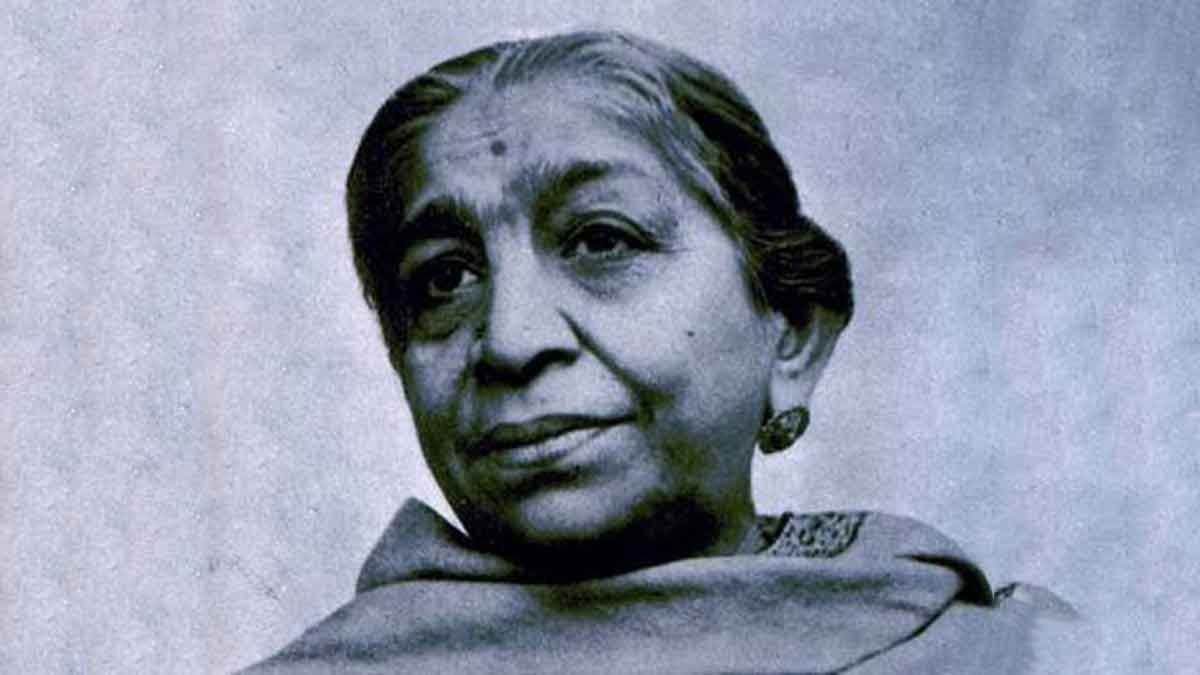
Sarojini Naidu: The Nightingale of India
In the pantheon of India’s freedom fighters and literary luminaries, Sarojini Naidu shines as a multifaceted gem, whose brilliance illuminated the realms of poetry, politics, and social reform. Revered as the “Nightingale of India” for her mellifluous poetry and celebrated as a fearless advocate for women’s rights and national independence, Naidu’s life and legacy continue to inspire generations of Indians and admirers worldwide.
Born on February 13, 1879, in Hyderabad, Sarojini Naidu was endowed with a rare blend of talent, intellect, and charisma from a young age. Her early education in Hyderabad and later at King’s College, London, nurtured her literary aspirations and imbued her with a deep sense of social responsibility. Naidu’s poetic gifts blossomed early, and her verses captivated audiences with their lyrical beauty and emotional depth.
Naidu’s literary prowess brought her widespread acclaim, earning her the title of “The Nightingale of India.” Her poetry, characterized by its exquisite imagery, poignant themes, and melodious cadence, captured the essence of India’s rich cultural heritage and the aspirations of its people. Naidu’s poetic oeuvre encompassed a wide range of subjects, from the beauty of nature to the struggles of the human spirit, earning her a place among the foremost poets of the Indian subcontinent.
Beyond her literary achievements, Naidu was also a trailblazer in the realm of social and political activism. She emerged as a prominent voice in the Indian nationalist movement, advocating for independence from British colonial rule and championing the cause of women’s rights. Naidu’s eloquence and passion made her a formidable orator, captivating audiences with her stirring speeches and impassioned pleas for social justice and equality.
Naidu’s role in the Indian freedom struggle was multifaceted and impactful. She played a pivotal role in the Indian National Congress, serving as its first female president in 1925. Naidu’s leadership and advocacy helped galvanize support for the nationalist cause, both within India and on the international stage. Her participation in the non-cooperation movement and civil disobedience campaigns demonstrated her unwavering commitment to the ideals of freedom and self-determination.
In addition to her political activism, Naidu was also a staunch advocate for women’s rights and empowerment. She fought tirelessly for the advancement of women in Indian society, advocating for equal rights, access to education, and participation in public life. Naidu’s efforts paved the way for future generations of Indian women to assert their rights and make their voices heard in the social, political, and cultural spheres.
Naidu’s legacy as a poet, politician, and social reformer continues to resonate in India and beyond. Her poetry remains a source of inspiration and solace for countless readers, while her advocacy for social justice and equality serves as a beacon of hope for marginalized communities around the world. As India celebrates its rich cultural heritage and strives towards a more inclusive and equitable society, the legacy of Sarojini Naidu shines brightly as a reminder of the transformative power of literature, activism, and the human spirit.










